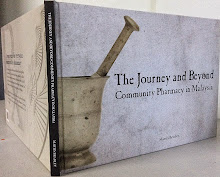The renown, astute and eternally stimulating avant-garde artist Luo Qi (who resides both in China and Portugal) continues to push artistic and textual boundaries in his latest work ‘Medieval Notes’. Having travelled and read widely Luo Qi has been able to push his calligraphic quest beyond the structures and strictures of traditional Chinese and Western calligraphies, into fresh areas of academic and artistic interest.
Having an eclectic, questing, turn of mind Luo Qi has continued to stride forward with his love for literature, poetry, music and visual art. Incidentally, all of which had coalesced in the European Middle Ages. Luo Qi’s latest presentation brings some of these interests together in this modern evocation and remarkable volume ‘Medieval Notes’. This is at once a homage to the past while, simultaneously, being a contemporary and original ‘Lucky Handwritten’ artwork incorporating images created on hemp paper and rice paper with grey and a hemp silk texture (2019).
Instead of Medieval text, Luo Qi has synthesised asemic writing through the use of Chinese pictograms (FU) and faux (or false) Western script beside illustrated first letters, as was common in Medieval manuscripts. Similar to other asemic writing, the viewer is hoodwinked into believing that the text has meaning outside of itself, whereas it has none. Luo Qi mentions that… “It is just a hypothesis, a mixture of unrelated relationships, and the text does not belong to the story, it belongs to pretend description, or narrative symbol, which is a misreading of the image. This is the idea contained in all my own artistic creation.”
In these ‘Medieval Notes’ there are evocations of venerated illuminated texts such as ‘The Book of Kells’ (an illuminated manuscript Gospel book, in Latin, currently to be found in Dublin’s Trinity College Library), and intimations of China’s 4th century compendium ‘The Guideways through Mountains and Seas’ (also known as Shanhaijing). Both were ‘epics’ in their time and while ‘The Book of Kells’ remains a prime example of a handmade and illustrated volume, China’s ‘Shanhijing' has been illustrated many times over the centuries, by hand and later printed.
Luo Qi’s weaving together of Chinese pictograms and Medieval Western manuscript imagery delivers what could be imagined to be an imaginary scribe’s ‘lost’ masterpiece, (one never actually written) binding East and West together in 90 manuscripts of "Medieval Notes” and referencing medieval cities, buildings, details, fragments and eras including ancient Greece, Rome and leading to the Renaissance (15th and 16th centuries in Europe) whose tales lived on through the "dark times" of Medieval times (Middle Ages - 5th to the late 15th centuries).
Once again Luo Qi has triumphed in his creation. Melding his imagination with the reimagining of antiquarian art and imagery, Luo Qi presents something new out of something old, as if a magician pulling rabbits from a hat. The fecundity of Luo Qi’s imagination apparently knows no bounds as he intrigues and delights us as yet another fully fledged dove takes flight from the same hat which had once hosted white rabbits.
Martin A Bradley, England, 2021











